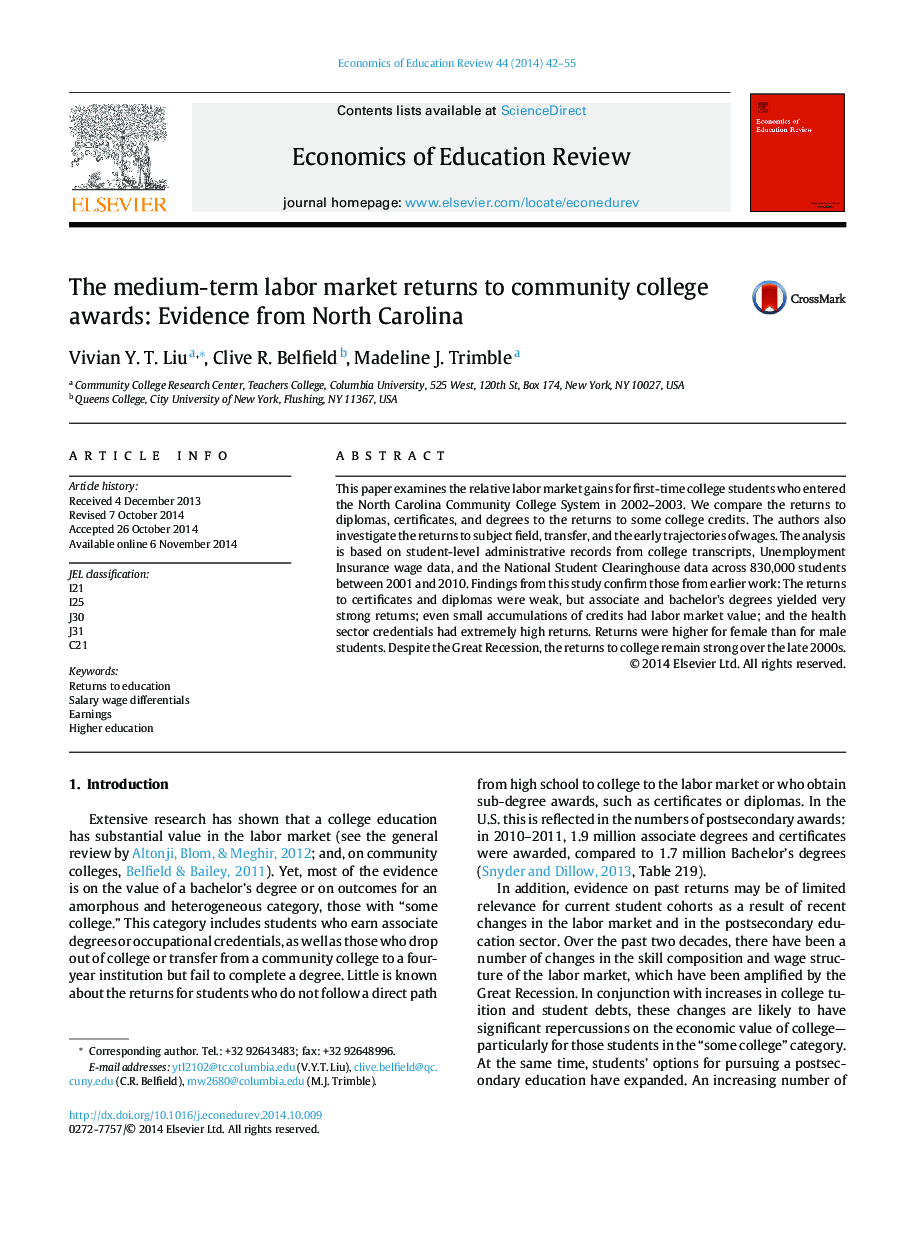| کد مقاله | کد نشریه | سال انتشار | مقاله انگلیسی | نسخه تمام متن |
|---|---|---|---|---|
| 354365 | 1434819 | 2015 | 14 صفحه PDF | دانلود رایگان |
• We examine the returns to college for those started at a community college in 2002.
• The returns were weak for certificates and diplomas.
• Health credentials, associate and bachelor's degrees yielded very strong returns.
• Even small accumulations of credits had labor market value.
• Despite the Great Recession, the returns to college remain strong in the late 2000s.
This paper examines the relative labor market gains for first-time college students who entered the North Carolina Community College System in 2002–2003. We compare the returns to diplomas, certificates, and degrees to the returns to some college credits. The authors also investigate the returns to subject field, transfer, and the early trajectories of wages. The analysis is based on student-level administrative records from college transcripts, Unemployment Insurance wage data, and the National Student Clearinghouse data across 830,000 students between 2001 and 2010. Findings from this study confirm those from earlier work: The returns to certificates and diplomas were weak, but associate and bachelor's degrees yielded very strong returns; even small accumulations of credits had labor market value; and the health sector credentials had extremely high returns. Returns were higher for female than for male students. Despite the Great Recession, the returns to college remain strong over the late 2000s.
Journal: Economics of Education Review - Volume 44, February 2015, Pages 42–55
